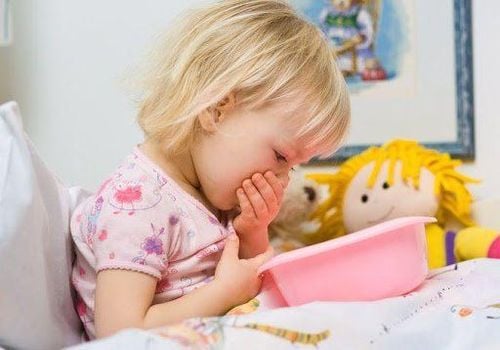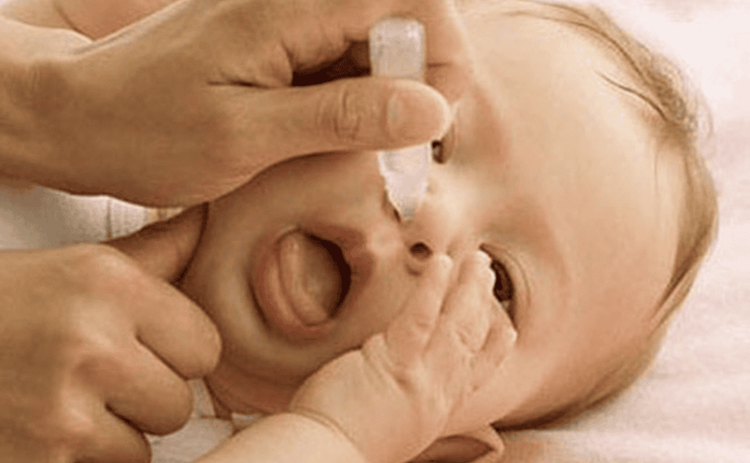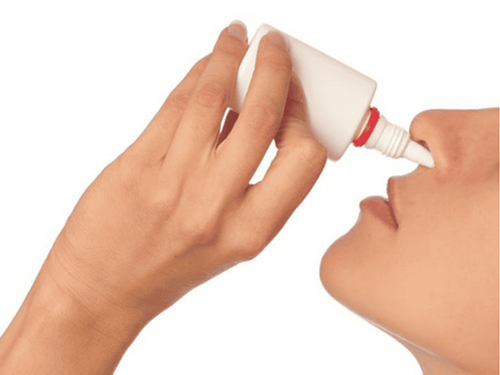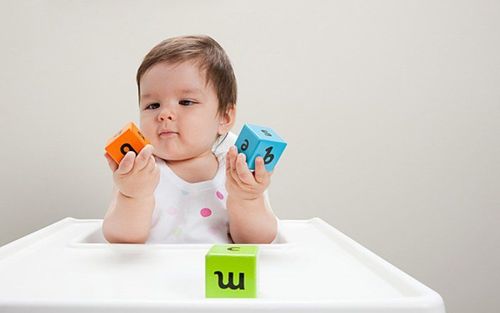This is an automatically translated article.
Article written by MSc Pediatric Center - Vinmec Times City International Hospital
Nasal congestion is common in people of all ages, but it's most common in young children. There are many causes and also many solutions depending on each case. Instead of medication, parents can apply simple home remedies for nasal congestion in children.
1. Causes of stuffy nose in children
Cold : The most common cause of stuffy nose in children is a cold. The erratic weather will make your baby more susceptible to colds and stuffy noses. In addition, children also experience other symptoms such as low-grade fever, cough, watery eyes and sneezing. Children with flu: Children with runny nose, stuffy nose can be caused by flu with accompanying symptoms of fatigue, low-grade fever, sore throat, dizziness and loss of appetite. Due to allergies: Some children are often very sensitive to their surroundings. Babies can be allergic to weather, pollen, dust... and accompanying symptoms at this time are sneezing, itchy nose and red eyes. Foreign object in the nose: One of the causes of children's stuffy nose is because while playing, children accidentally or intentionally let a toy get into their nose. This situation is quite dangerous because it can make the child unable to breathe, parents need to take the baby to see a doctor quickly for timely treatment.

2.How to treat stuffy nose in children safely at home
Use physiological saline Salt water helps to thin the nasal mucus, which can help children temporarily clear the nasal passages, thereby reducing discomfort. Physiological saline does not contain any chemicals, so it is very safe to use for children.
If using drops, put 2 drops in each nose, then use a nasal aspirator or nasal aspirator to draw out nasal secretions and mucus. However, it should be remembered that aspiration needs to be done carefully because it can damage the lining of the baby's nose.
The spray or drop of physiological saline may make the baby uncomfortable, so parents should only apply it when needed and should use it before feeding the child so that the child can be exposed and get used to it, this will help easier to do next time.
In the case of children with prolonged stuffy nose, difficulty breathing, wheezing a lot..., parents should take the child to see a doctor for examination and advice on safer and more effective treatment measures.

3.How to prevent stuffy nose in children
Focus on increasing the child's resistance and immune system by feeding and sleeping on time. Limit contact with people who are sick with the flu. Cleaning your baby regularly will help reduce the spread of harmful bacteria to the baby and help improve the condition of children with stuffy nose and wheezing.
4.Some notes parents need to remember
Do not use your mouth to suck mucus or nasal secretions from your child. Do not arbitrarily give antibiotics to children without a doctor's prescription. Do not apply folk tips without clearly understanding or without medical verification. Do not abstain from bathing your baby because it can cause bacteria to grow more. For children to be healthy and develop well, it is necessary to have a nutritious diet in terms of quantity and quality balance. If children are not provided with adequate and balanced nutrients, it will lead to diseases of excess or lack of nutrients, which adversely affect the comprehensive development of children in terms of physical, mental and motor skills.
Children who do not eat properly are at risk of micro-mineral deficiency causing anorexia, growth retardation, malabsorption,... If they notice the above signs, parents should supplement their children with products. The supplement contains lysine, essential micro-minerals and vitamins such as zinc, chromium, selenium, and B vitamins to help fully meet the nutritional needs of children. At the same time, these essential vitamins also support digestion, enhance nutrient absorption, help improve anorexia, and help children eat well.
Parents can learn more:
Signs of zinc deficiency in children
Micronutrient deficiency and failure to gain weight in children
Please regularly visit Vinmec.com website and update useful information to take care of your child. Take care of the baby and the whole family.













